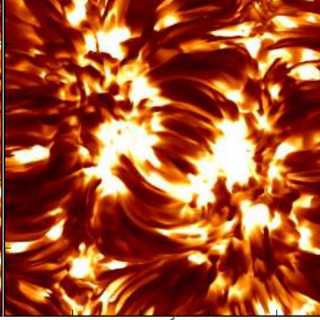Bibcode
Trujillo Bueno, Javier; del Pino Alemán, Tanausú; Li, Hao; Song, Donguk; Rachmeler, Laurel A.; Okamoto, Takenori J.; Auchère, Frédéric; Kobayashi, Ken; McKenzie, David E.; Alsina Ballester, Ernest; Ishikawa, Ryohko
Bibliographical reference
The Astrophysical Journal
Advertised on:
3
2023
Journal
Citations
9
Refereed citations
9
Description
We apply the Tenerife Inversion Code (TIC) to the plage spectropolarimetric observations obtained by the Chromospheric LAyer SpectroPolarimeter (CLASP2). These unprecedented data consist of full Stokes profiles in the spectral region around the Mg II h and k lines for a single slit position, with around two thirds of the 196″ slit crossing a plage region and the rest crossing an enhanced network. A previous analysis of these data had allowed us to infer the longitudinal component of the magnetic field by applying the weak-field approximation (WFA) to the circular polarization profiles, and to assign the inferred magnetic fields to different layers of the solar atmosphere based on the results of previous theoretical radiative transfer investigations. In this work, we apply the recently developed TIC to the same data. We obtain a stratified model atmosphere that fits the intensity and circular polarization profiles at each position along the spectrograph slit and we compare our results for the longitudinal component of the magnetic field with the previously obtained WFA results, highlighting the generally good agreement in spite of the fact that the WFA is known to produce an underestimation when applied to the outer lobes of the Mg II h and k circular polarization profiles. Finally, we use the inverted model atmospheres to give a rough estimation of the energy that could be carried by Alfvén waves propagating in the chromosphere in the plage and network regions, showing that it is sufficient to compensate for the estimated energy losses in the chromosphere of solar active regions.
Related projects

Magnetism, Polarization and Radiative Transfer in Astrophysics
Magnetic fields pervade all astrophysical plasmas and govern most of the variability in the Universe at intermediate time scales. They are present in stars across the whole Hertzsprung-Russell diagram, in galaxies, and even perhaps in the intergalactic medium. Polarized light provides the most reliable source of information at our disposal for the
Tanausú del
Pino Alemán